The 7th Conference on Global Governance: International Seminar on“China, EU and Latin America: Current Issue and Future Cooperat
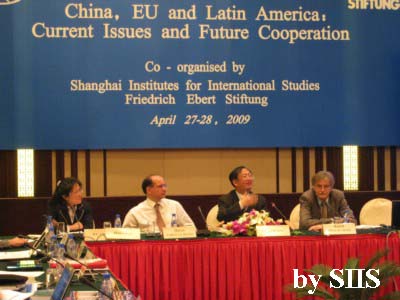
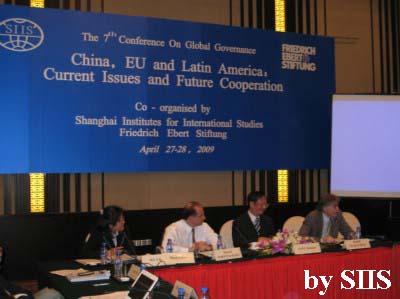
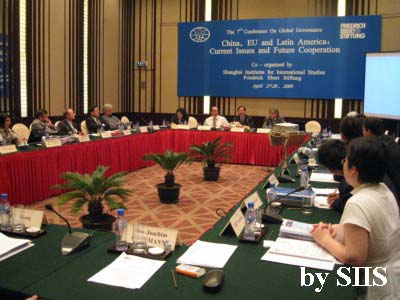
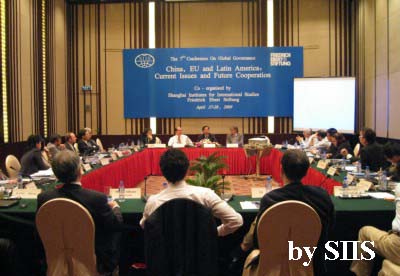
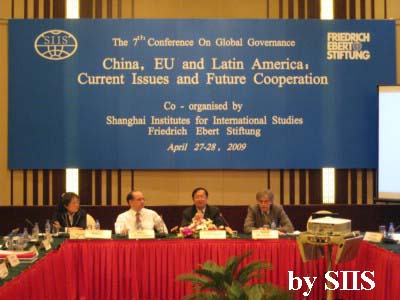
2016/09/10 read:558
International Seminar on“China, EU and Latin America: Current Issue and Future Cooperation” was held in Shanghai. It was co-sponsored by SIIS and Friedrich Ebert Foundation. The participants consist of 32 scholars and officials from UN, EU, Mercosur, Germany, Spain, Brazil, Argentina, Mexico, Chile, Beijing and Shanghai. The major seminar topics are making comparisons on China-Latin America and EU-Latin America foreign relations, Mercosur’s relationship with EU and China, Energy security and climate change, and trilateral relations and scope for multilateralism.
The participants argued that there are similarities between the economic relations of Latin America with China and EU, and the only difference is the impact of China is stronger than EU. The development of China-Latin America relations made Latin America keep a distance from EU. EU has a higher level of institutional cooperation with Latin America than China. Latin America’s poor economic performance is caused by itself rather than China’s competition. The difficulties of the EU-Mercosur relationship lie in that the priority of EU is East Europe and Asia-Pacific, and the deadlock of their FTA negotiation. There are interactions between China and Mercosur, but it needs to be promoted further. While Latin America is not China’s main energy import market, it has a great influence on the diversification of China’s energy import, and China’s investment in the energy sector will contribute to ease the region’s shortage of capital. The cooperation on energy is beneficial for both China and Latin America. Latin America has advantages in its energy, resources, and bio-diversity, which offers the region an independent position in its interaction with external world. The weakness of the region is its vulnerability in ecology and low energy efficiency. Though participants held different arguments on the trilateral relationship among China, EU, and Latin America, and its interaction with multilateralism, most of them agreed that there is broad space for future trilateral cooperation such as the reform of multilateral institutions, and cooperation on alternative energy, etc.
The participants argued that there are similarities between the economic relations of Latin America with China and EU, and the only difference is the impact of China is stronger than EU. The development of China-Latin America relations made Latin America keep a distance from EU. EU has a higher level of institutional cooperation with Latin America than China. Latin America’s poor economic performance is caused by itself rather than China’s competition. The difficulties of the EU-Mercosur relationship lie in that the priority of EU is East Europe and Asia-Pacific, and the deadlock of their FTA negotiation. There are interactions between China and Mercosur, but it needs to be promoted further. While Latin America is not China’s main energy import market, it has a great influence on the diversification of China’s energy import, and China’s investment in the energy sector will contribute to ease the region’s shortage of capital. The cooperation on energy is beneficial for both China and Latin America. Latin America has advantages in its energy, resources, and bio-diversity, which offers the region an independent position in its interaction with external world. The weakness of the region is its vulnerability in ecology and low energy efficiency. Though participants held different arguments on the trilateral relationship among China, EU, and Latin America, and its interaction with multilateralism, most of them agreed that there is broad space for future trilateral cooperation such as the reform of multilateral institutions, and cooperation on alternative energy, etc.





